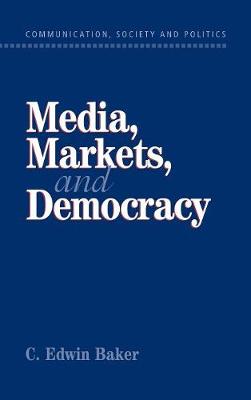Communication, Society and Politics
2 total works
Firmly rooting its argument in democratic and economic theory, the book argues that a more democratic distribution of communicative power within the public sphere and a structure that provides safeguards against abuse of media power provide two of three primary arguments for ownership dispersal. It also shows that dispersal is likely to result in more owners who will reasonably pursue socially valuable journalistic or creative objectives rather than a socially dysfunctional focus on the 'bottom line'. The middle chapters answer those agents, including the Federal Communication Commission, who favor 'deregulation' and who argue that existing or foreseeable ownership concentration is not a problem. The final chapter evaluates the constitutionality and desirability of various policy responses to concentration, including strict limits on media mergers.
Government interventions in media markets are often criticized for preventing audiences from getting the media products they want. A free press is often asserted to be essential for democracy. The first point is incorrect and the second is inadequate as a policy guide. Part I of this book shows that unique aspects of media products prevent markets from providing for audience desires. Part II shows that four prominent, but different, theories of democracy lead to different conceptions of good journalistic practice, media policy, and proper constitutional principles. Part II makes clear that the choice among democratic theories is crucial for understanding what should be meant by free press. Part III explores international free trade in media products. Contrary to the dominant American position, it shows that Parts I and II's economic and democratic theory justify deviations from free trade in media products.

